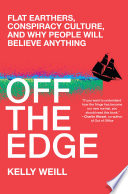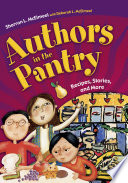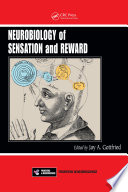If you love taking a trip back in time with historical fiction and romance books, you’ll love our authors like Sandra Byrd.
Historical fiction and Christian devotional author Sandra Byrd has written more than 50 books. Recognized by Publisher’s Weekly, Library Journal, Bookpage, and Booklist, Byrd is known for her writing that celebrates family connections, female friendships, and the importance of passing life lessons down through generations. Byrd speaks openly about her struggles at the beginning of her career.
After going to college on a writing scholarship, she graduated, unsure how she’d ever make money in her chosen career path. Byrd speaks to her faith and her belief that all things are possible through God when explaining how she overcame her fear and forged ahead on the difficult path to getting published. In addition to writing, Byrd also coaches new writers, sharing her expertise on how to stay strong in a tough industry.
Why Sandra Byrd’s Approach Resonates in 2025
Sandra Byrd’s writing philosophy has proven remarkably prescient in today’s literary landscape. Several key elements of her work have become increasingly important to contemporary readers:
Intergenerational Storytelling: Byrd’s focus on passing wisdom across generations speaks to modern readers navigating complex family dynamics and seeking connection with their heritage. In an era of rapid change, stories that link past and present provide emotional anchoring.
Faith-Integrated Fiction: Rather than segregating faith into a separate category, Byrd weaves spiritual themes naturally into compelling narratives. This approach appeals to the growing number of readers seeking meaningful literature that addresses life’s deeper questions without being preachy.
Female Agency in Historical Context: Byrd’s strong female characters who navigate historical constraints while maintaining their voice and values resonate with contemporary discussions about women’s roles and empowerment throughout history.
Community and Connection: Her emphasis on female friendships and family bonds addresses the modern epidemic of loneliness, offering readers models of deep, supportive relationships that transcend time periods.
Historical Accuracy with Accessibility: Byrd’s meticulous research combined with engaging storytelling meets the current demand for historically accurate fiction that educates without overwhelming casual readers.
If you love books by Sandra Byrd, these authors share her commitment to historical authenticity, strong character development, and meaningful themes that resonate across centuries.
For more recommendations, you might also enjoy exploring best historical fiction books, authors like James Michener, best war books.
Must-Read Authors Like Sandra Byrd
1. Rozsa Gaston
Historical romance author Rozsa Gaston is known for combining real-life characters and events with fictional accounts that allow readers to feel like they’re getting a secret account of what life was like hundreds of years ago.
In Sense of Touch: Love and Duty at Anne of Brittany’s Court, Gaston details life in the Renaissance period in France. Like many of her novels, Sense of Touch takes a real-life historical figure, Anne of Brittany, and weaves in mystical qualities, in this case, the gift to heal people and animals with the touch of her hand.
Why Sandra Byrd fans will love her: Gaston shares Byrd’s gift for bringing historical figures to life through intimate, personal stories. Both authors excel at showing how extraordinary people navigated ordinary human emotions and relationships, making history feel immediate and relevant.
Historical authenticity: Gaston’s meticulous research into court life and Renaissance customs mirrors Byrd’s commitment to accuracy, ensuring readers gain genuine historical insight alongside compelling romance.
“Crossbow practice was not just for sport. She thrilled to see her arrow fly to its aim, knowing it was her steady hand and careful eye that had sent it there. One day she would use a similar hand and eye to rule over all that she managed as Queen of France. For that role, she must practice with diligence.” —Rozsa Gaston, Margaret of Austria: Governor of the Netherlands and Early 16th-Century Europe’s Greatest Diplomat
2. Lara Byrne
Lara Byrne is a historical romance author who works to transport readers to medieval times, allowing them to feel as if they were a fly on the wall hundreds of years ago. Byrne makes a point to develop strong female characters in her novels, noting how history has failed to record women’s impact on society during the period.
The author describes her novels as “a blend of fiction and careful research,” creating stories that entertain readers and allow them to learn more about the details of the medieval period. Lotharingia: Charlemagne’s Heir is the author’s first novel and the first book in her Comitissa series.
Connection to Byrd’s themes: Byrne’s focus on recovering women’s voices from history aligns perfectly with Byrd’s mission to highlight female strength and influence across generations. Both authors understand that women’s stories deserve to be told with dignity and complexity.
Medieval expertise: Byrne’s specialization in medieval periods complements Byrd’s broader historical range, offering readers deep dives into specific eras with the same attention to character development and relationship dynamics.
“The gentle smile of the late pope vanished from her mind’s eyes. The shining shapes of the burnished eagles evoked strength. She would need all her strength to persuade Ildebrando di Soana to complete his predecessor’s work. The odds were stacked against her, but now was the time to try, while he felt blessed by God’s will and while he needed political support for his anomalous election.” —Lara Byrne, The Road to Canossa (Comitissa of Tuscany)
3. Gary McAvoy
Gary McAvoy is a historical suspense author who has always been fascinated by war, religion, and faith. After completing a tour in Germany as a member of the U.S. Army, McAvoy became fascinated with cryptology and international intelligence and was inspired to combine his love of travel with his love of writing.
In the author’s debut historical suspense series, The Magdalene Chronicles, McAvoy combines historical fact with entertaining fiction to present a gripping investigation into those in power in the Catholic church.
Faith and history intersection: McAvoy’s exploration of religious themes within historical contexts mirrors Byrd’s approach to integrating faith naturally into period storytelling. Both authors treat spiritual questions with respect while maintaining narrative tension.
Contemporary relevance: His focus on institutional power and hidden histories appeals to readers who appreciate Byrd’s subtle examination of how faith operates within human institutions and relationships.
“But then, the Holy Spirit came to me, and I was reminded of something Saint Augustine said: ‘Seek not to understand that you may believe, but believe that you may understand.’” —Gary McAvoy, The Magdalene Reliquary
4. Melanie Dobson
Melanie Dobson has written more than 20 historical romance and historical suspense novels. Some of the author’s novels involve time slips, transporting readers from the present day to various historical periods. Her Carol-Award-winning novel Memories of Glass follows childhood friends Josie and Eliese in Holland as they work to rescue Jewish children from Nazis in Amsterdam.
Readers get to watch how the courage of Eliese and Josie shapes history as the story moves to 75 years later when modern-day connections form between protagonist Ava and the story of Eliese and Josie.
Intergenerational storytelling: Dobson’s time-slip novels exemplify the intergenerational themes that make Byrd’s work so compelling. Both authors understand how past courage and sacrifice echo through family lines and influence contemporary lives.
Faith in action: Like Byrd, Dobson shows faith working through ordinary people in extraordinary circumstances, demonstrating how spiritual conviction translates into real-world courage and compassion.
“I have no desire to be in a relationship for the sake of being in one,” he said. “I’ve made mistakes in the past, terrible ones. The next time I date a woman, I hope it’s for keeps.” —Melanie Dobson, Chateau of Secrets
5. Amy Licence
Historical fiction novelist Amy Licence delves into the stories of characters set in the medieval and early modern periods. Licence is praised for exploring characters from all class systems in her work. Heralded as “unquestionably the most prolific historian writing today,” by historian Nathen Amin, Licence’s attention to detail and ability to provide readers with unique perspectives shines in each of her novels.
The author’s 2017 novel, The Lost Kings: Lancaster, York, and Tudor, is a non-fiction offering from Licence, offering fans of her work the chance to see her historical research at its best.
Historical scholarship: Licence’s background as a professional historian brings the same level of research integrity that characterizes Byrd’s work, ensuring readers can trust the historical context while enjoying compelling narratives.
Class-conscious storytelling: Her attention to characters across social strata mirrors Byrd’s interest in how faith and family connections transcend social boundaries, creating universal themes within specific historical contexts.
“Politics and government were the jurisdiction of men. Contemporary manuals advised against the lines being blurred, citing women’s propensity to gossip as damaging to male business, and women who formally wielded power were relatively unknown. However, this must have varied as much as personal relationships did and, as Chaucer’s writings make clear, intelligent women must have been influential where circumstances allowed.” —Amy Licence, Red Roses: Blanche of Gaunt to Margaret Beaufort
6. Lisa Kleypas, 1964-
New York Times bestselling historical fiction author Lisa Kleypas got her literary start early, publishing her first novel when she was just 21 years old. Many of Kleypas’ novels have been met with wide critical acclaim. Worth Any Price won the RITA award for best short historical.
Her 2005 novel It Happened One Autumn was nominated in the same category that year. While Kleypas continues to write historical fiction, she’s also branched into contemporary romance with her celebrated novel Sugar Daddy. Readers love how Kleypas brings old characters back for cameos in new novels.
Character continuity: Kleypas’s practice of continuing character relationships across books mirrors Byrd’s emphasis on intergenerational connections and the lasting impact of family bonds.
Romance with depth: Both authors excel at creating romantic relationships that feel emotionally authentic while addressing larger themes of personal growth, faith, and family loyalty.
2025 relevance: Kleypas’s evolution into contemporary romance shows how the themes of historical fiction—love, family, personal growth—remain relevant across time periods, much like Byrd’s timeless approach to storytelling.
“I no longer believed in the idea of soul mates, or love at first sight. But I was beginning to believe that a very few times in your life, if you were lucky, you might meet someone who was exactly right for you. Not because he was perfect, or because you were, but because your combined flaws were arranged in a way that allowed two separate beings to hinge together.” —Lisa Kleypas, Blue-Eyed Devil
7. Julia Quinn, 1970 -
Julia Quinn (born Julie Cotler) is best known for her Bridgerton series of books, made into a hit Netflix series under the production company owned by Grey’s Anatomy creator Shonda Rhimes. Readers and viewers love how Quinn melds historical accuracy with modern ideas (including feminism), creating relatable heroines.
Quinn has hit the New York Times bestseller list 17 times. In addition to the Bridgerton series, Quinn is also known for the Splendid trilogy, the Rokesby series, and the Bridgerton spinoff Lady Whistledown series.
Modern sensibilities in historical settings: Quinn’s ability to create historically accurate yet relatable characters mirrors Byrd’s skill in making historical figures feel contemporary and accessible to modern readers.
Cultural impact: The massive success of the Bridgerton adaptation demonstrates the continued appetite for historical fiction that combines accuracy with engaging storytelling—exactly what Byrd has always provided.
Family dynamics: Quinn’s focus on sibling relationships and family loyalty echoes Byrd’s emphasis on intergenerational bonds and the importance of family support systems.
“Love’s about finding the one person who makes your heart complete. Who makes you a better person than you ever dreamed you could be. It’s about looking in the eyes of your wife and knowing all the way to your bones that she’s simply the best person you’ve ever known.” —Julia Quinn, The Viscount Who Loved Me
8. Beverly Jenkins, 1951 -
Beverly Jenkins writes historical and contemporary romance and focuses on life for African-Americans in the 1800s. In 1999, the African American Literature Book Club voted Jenkins as one of the top 50 African-American authors of the 20th century.
A self-dubbed “kitchen table historian,” Jenkins tackles pieces of African-American history that rarely make it into history books. Some of the author’s most popular works include For Your Love, Chasing Down a Dream, and On the Corner of Hope and Main.
Underrepresented voices: Jenkins’s commitment to highlighting overlooked African-American historical experiences complements Byrd’s focus on women’s stories and demonstrates how historical fiction can recover important but marginalized narratives.
Community storytelling: Both authors understand how individual stories reflect broader community experiences, showing how personal faith and family connections sustain people through historical challenges.
Historical accuracy with heart: Jenkins’s “kitchen table historian” approach mirrors Byrd’s ability to combine rigorous research with emotionally accessible storytelling.
“As he’d noted before, the decision to cross the color line had allowed him to reap many benefits, but it had cost him, too, and this time that decision would haunt him for the rest of his life.” —Beverly Jenkins, Forbidden
9. Eloisa James, 1962-
Eloisa James (born Mary Bly) is a Shakespeare professor and best-selling author. In addition to her standard romance novel work, James also wrote a well-received memoir, Paris in Love, detailing the year her family spent living in France. Her novels are set in the 1700s and 1800s and often reference Shakespearean works. James is known for the historical accuracy of her novels and the development of strong female friendships between characters.
For many years, James lived a double life, working as Professor Bly during the day and attending events as Eloisa James - wearing contacts instead of glasses to disguise herself from students and colleagues. In 2005, she revealed her dual realities. She wrote a New York Times op-ed piece defending the legitimacy of romance writing.
Academic credibility: James’s background as a literature professor brings the same scholarly approach to historical fiction that characterizes Byrd’s work, ensuring both accuracy and literary quality.
Female friendships: Her emphasis on women’s relationships mirrors Byrd’s focus on how female connections provide strength and support across generations.
Literary integration: James’s incorporation of Shakespearean elements parallels Byrd’s way of weaving cultural and spiritual traditions into contemporary narratives.
“If you throw me out of this house, I shall sleep on the path outside. If you return to the Continent without me, I shall follow you. I will build a willow hut at your gate; I will sleep under your window; I will be waiting for you at your own front door.” —Eloisa James, When Beauty Tamed the Beast
10. Julie Garwood, 1944 -
Julie Garwood has sold over 35 million copies worldwide in both historical and suspense romance genres. Garwood initially set out to become a nurse and took a history course as a part of her studies. She was intrigued and decided to pursue a double major. Eventually, she wrote her first historical novel, Gentle Warrior, a standalone piece.
Garwood is known for creating female characters who are lovable yet flawed and has a penchant for writing close friend groups that function as families. In 2008, Garwood began entering contemporary romance with her novel Heartbreaker.
Found family themes: Garwood’s focus on friend groups that become families resonates with Byrd’s emphasis on how communities of faith and friendship provide support across generations.
Character development: Both authors excel at creating flawed, relatable characters who grow through their relationships and challenges, showing how personal faith and community support facilitate genuine transformation.
Genre versatility: Garwood’s successful transition between historical and contemporary romance demonstrates the timeless appeal of the relationship dynamics and themes that also characterize Byrd’s work.
“If you begin to give away parts of yourself, eventually you’ll give it all. And once you’ve lost yourself, haven’t you lost everything?” —Julie Garwood, For the Roses
The Enduring Appeal of Historical Fiction Like Sandra Byrd’s
These authors represent the best of contemporary historical fiction, sharing Sandra Byrd’s commitment to several key principles that have become increasingly important in 2025:
Authentic Historical Research: All these writers prioritize accuracy while making history accessible and engaging for contemporary readers.
Strong Female Characters: They create women who navigate historical constraints while maintaining agency, dignity, and influence—reflecting modern understanding of women’s historical roles.
Faith and Family Integration: Whether explicitly Christian or more broadly spiritual, these authors understand how faith and family connections provide meaning and stability across time periods.
Intergenerational Wisdom: They explore how lessons, values, and love pass between generations, addressing modern readers’ hunger for connection with their heritage.
Universal Themes in Historical Context: While grounded in specific time periods, these stories address timeless questions about love, loyalty, purpose, and belonging that resonate across centuries.
Sandra Byrd’s influence on historical fiction extends beyond her own novels to inspire a generation of writers who understand that the best historical fiction doesn’t just recreate the past—it illuminates the present by showing how human experiences of love, faith, family, and friendship transcend time. These authors continue that tradition, offering readers both escape and insight through their carefully crafted stories of the past.





